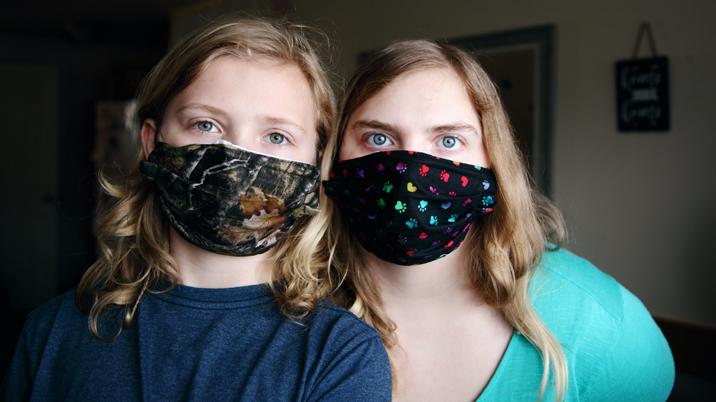
So, have you embraced the ‘new normal’ yet? No, me neither. It’s annoying how fast that term has caught on, becoming a cliché in weeks.
“Never use a metaphor, simile, or other figure of speech which you are used to seeing in print,” advised George Orwell in his rules for writing, and, “never use a foreign phrase, a scientific word, or a jargon word if you can think of an everyday English equivalent.” The first is hard and a lot easier if you’re George Orwell. The second, anyone can do but many people don’t. Why?
Every profession has its internally useful jargon. Journalists talk about ‘copy’ but to outsiders, they are articles, and advertising sales talk about ‘advertorials’ but to the readers, it’s just advertising. Specialist jargon helps professional colleagues speak the same language for convenience and clarity, whether they are lawyers, architects or accountants.
We expect it in some contexts. About to go under the knife, you want to hear the surgeon describe your operation to colleagues in obscure medical terms you don’t understand. You don’t want to hear: “first we’ll try cutting through that bit, just, you know, about halfway down and round a bit to the left. Your left, not my left – right? Then you snip the slithery long bit and I’ll tie that scraggly sort of pink bit.” You want medical terms.
But jargon in the wrong place becomes a barrier to understanding and excludes people not in the know. Once the buzzwords escape the marketing strategies or human resource meetings, they spread like the clichéd wildfire and they really begin to grate.
Journalists ought to know better. We love a good buzzword for a while; ‘new normal’ is partly journalists’ fault. Yet, we also kick against obscure jargon and tired buzzwords because we spend half our time wading through it, toiling to turn it into plain English.
There’s even an online tool to help. Upload your press release or any other writing to thebuzzsaw.co.uk and it will check it against a list of the annoying words and phrases voted by thousands of media contacts. It has announced the worst buzzwords of 2020, based on volume of submissions. For example, at number 15 there is ‘solutions’, used by the sticker company that describes itself as ‘a global leader in adhesive labelling solutions’. Next is ‘going forward’. At number 7 is the one I see most in PR. Unless you were a member of the Motown group The Four Tops, you should not ‘reach out’ to anyone.
Jargon in the wrong place becomes a barrier to understanding and excludes people not in the know.
Content is…
But high on the list, at number 2, is one that comes from the publishing industry itself, one I do my best to avoid but sometimes find it difficult. It’s the apparently innocuous sounding ‘content’. “Second only to the vacuum of space as the emptiest thing in the universe,” said the judges, “it’s the high watermark in the commoditisation of writing.”
I’ve always been uneasy with the catch-all term, but it’s only in the last year or two I’ve heard it raised by more editors, reassuring me that I’m not alone.
What goes into ‘content’ is fine; it’s just articles, videos, programmes, pictures or anything else in any channel, by journalists, by readers or whoever. But its very generality has a tendency to homogenise, turning our work that informs, entertains, excites, saddens, fascinates or inspires into a sort of grey goo of nothingness. It becomes something to fill the space between the advertising, which is precisely how one or two publishers I have known tended to view our work. I even remember one publisher talking about ‘squirting’ content into channels, like decorator’s caulk or filler.
‘Content’ feels like a sea of sameness, yet it includes everything from light fillers or picture stories to moving interviews, shocking exclusives or investigative documentaries. Not all ‘content’ is created the same or indeed equal. And as the term becomes so bland and broad, it starts to blur. To help focus again, we had the phrase ‘Content is King’ which should be a statement of the blindingly obvious.
If not ‘content’, what then? Buzzsaw’s founder suggests ‘information’ but to me, that isn’t much better. I have noticed in reader research that if you ask how they get ‘information’, they interpret it to be about their research with a more useful or essential purpose than say, news they happen upon in Facebook.
I think ‘stories’ is a better choice. At least it includes the variety, makes you think of something more interesting than anonymous ‘content’. And everything we do is a ‘story’ of some kind, told in an endless variety of ways. Stories are good or bad, shocking or sad – they can convey any emotion or tell of any human experience. But maybe you have a better suggestion?
And what’s your most loathed buzzword, jargon or cliché? Starting every statement with ‘So,…’ is one of mine. I avoid it always. Well, nearly always.
Not all ‘content’ is created the same or indeed equal. And as the term becomes so bland and broad, it starts to blur.
This article was first published in InPublishing magazine. If you would like to be added to the free mailing list, please register here.












